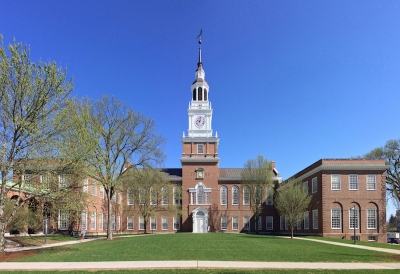
How Hard Are College Classes?
When I was in high school, everyone told me college is harder than high school. But until I came to college, I never quite understood what they meant.
In high school, I was part of the International Baccalaureate (IB) program through which I took classes similar to Advanced Placement and other college-prep courses. The workload was heavy, as we had to complete a large project for every class each semester on top of finals, a standardized test, and a cumulative essay. Most classes were two years long, starting during junior year and finishing at the end of senior year, but there was a lot of content and we moved quickly through it. I thought college couldn't be much different.
At Dartmouth, classes move even faster. We use the quarter system, so a class that would normally take a semester is taught in just ten weeks. This means that midterms come much sooner than expected, with some start three weeks or so into the term. This is a step up from IB for sure—you have to stay up to date with assignments and lectures, because each one tends to cover a different topic, and it can be difficult to catch up.
However, classes are still very manageable. Unlike high school, there is a lot more time to spend on classwork and homework as lectures are shorter, and you only take three courses per term. In fact, I think the biggest challenge for first-year students is that they sometimes feel like they have too much free time. It can be easy to lose track of your workload when you only spend three or four hours in class each day, so developing good time management skills is key to succeeding in college.
In short, college classes are indeed harder than high school classes. Courses move through a lot of content in a short period of time, and it's important to stay on top of it to not fall behind. Thankfully, is it very much possible to succeed as long as you dedicate yourself and find a study schedule that works for you.

















